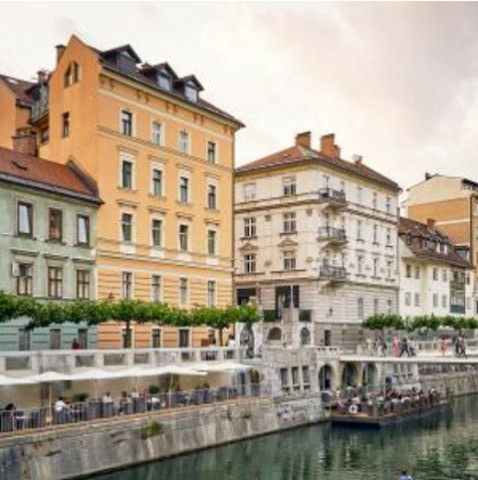
GCED Basic Search Form
Quick Search
أنت هنا
الأخبار

By PEACE INSTITUTE SLOVENIA and Marek Kakaščík
"The project does not treat migrants, refugees, and asylum seekers as passive objects of science, but actively involves them in the educational process and gives them voice."
Stereotypes, fear and hate towards migrants, refugees, asylum seekers (ie. “the others”) are in constant rise. It is a phenomenon constructed by the dominant discourse of parliamentary politics, mass mainstream media, and popular culture/lifestyle. State institutions are weak in addressing this problem. The project Solidarity-Equality-Sameness addresses this problem by implementing an innovative educational approach in high schools approaching the most fragile part of the society: high school students and empowering them for critical thinking.
The main objective of the project is to inform students on a multifaceted basis about migration with a goal to break stereotypes, fear, and hatred, and empower them to act responsibly towards the migration issue by promoting the concepts of solidarity (pragmatic-daily level), equality (political-ideological level) and the sameness (humanistic-universalist level) both within the school classes, the local environment, and wider society. It is done through the dissemination of knowledge, information, and facts about migrations but also personal experiences of migrants. The key activities of the project include the preparation, implementation, and evaluation of workshops, as well as the preparation of learning scenarios that emerge from the needs and wishes of schools.
Key actors in the educational process are students and migrants, refugees, asylum seekers, which together face intercultural differences and stereotypes and reflect the importance of intercultural dialogue and respect for human rights in building a tolerant and solidary society. In the preparation and implementation of workshops, migrants are actively involved with their knowledge and experience. We cooperate with at least 10 migrants from different countries (Syria, Afghanistan, Iraq, Iran, Morocco, Algeria, Ghana, Eritrea, China, Nigeria), who share their knowledge and experience in the design and implementation of workshops so that to best provide relevant information on the conditions leading to migration (structural causes) as well as breaking stereotypes, hatred, and fear by sharing their own stories at the workshops themselves in direct dialogue with students.
Topics addressed by the learning scenarios are migration, hate speech, media, social networks, human rights, tolerance, solidarity, stereotypes, nationalism, and racism. The key is that students receive quality information on the basis of which they can form their positions and develop a tolerant attitude towards migrants, refugees, asylum seekers and receive basic conceptual tools for developing critical thinking and acting.
The predicted methods that we use to educate and raise awareness of students include frontal education, “live library”, projections of films and video clips with discussions, a "privilege game" workshop, and a "local is global" workshop. However, due to the pandemic COVID – 19 which disabled the normal education process and moved everything online, we have been forced to adjust our methods and approach as well. In close communication and collaboration with both, teachers at one and migrants, refugees and asylum seekers on the other side, we prepared extensive online learning materials, so-called “educational packages” which consist of PPT presentations with all relevant information accompanied with the video statements of migrants, refugees and asylum seekers telling their stories as well as short video films about this issue we produced about the topic in the past.
One of the films presented, you can watch another here
The project is innovative because it complements the official educational process by enabling a student to establish direct contact with migrants, refugees, asylum seekers thus encouraging them to free themselves from stereotypes, fear, and hatred. Hearing personal stories of migrants, refugees, and asylum seekers is also important because it encourages compassion, solidarity and tolerance towards “the others”. Also, it does not treat migrants, refugees, and asylum seekers as passive objects of science, but actively involves them in the educational process, gives them voice, and visibility and in this way acts emancipatory on everybody. The innovation of the project also lies in the fact that it does not just teach about migration, but develop various approaches through which students in a more plastic way get a picture of migrations as a phenomenon of modern society. In this way, the significance of migration is demystified as something bad, dirty, scary, and this phenomenon is given a different connotation as a phenomenon that is an integral part of this world.
The educational model is designed to be easily transferred to other areas/environments and countries because it is based on universal values, programme, and methodology. In every environment, it can be done in the same way together with migrants, refugees, asylum seekers, living in that environment.
Although we will, due to the pandemic COVID – 19, implement the project on-line we will, for sure come back to schools after the pandemic will be over and establish direct contact with students and teachers in the future.
URL:
